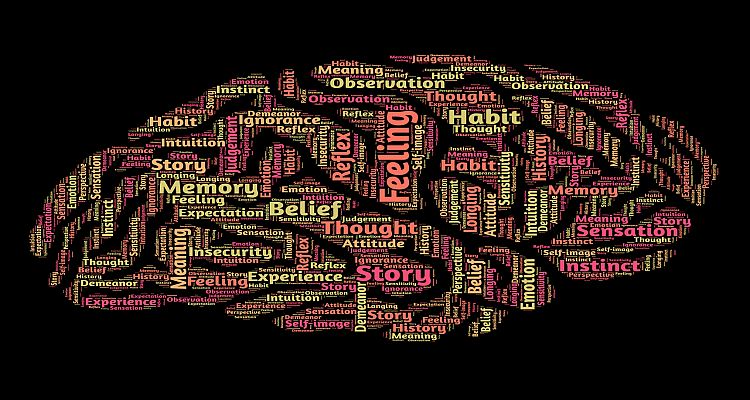I am sure everyone of you reading this article are aware of Intelligence quotient or what we commonly term as IQ. Whenever we talk about a person or describe her/him we are likely to comment upon their intelligence. I would request you engage in a small activity of about 30 seconds and ponder upon the kind of intelligence you are referring to while describing a person or even yourself. I am sure that almost 98% of you refer to their intelligence based on their exam score, their knowledge of world affairs. Right? Have you ever described a person in terms of their intra-personal, interpersonal, abstract intelligence or emotional intelligence? I personally don’t do that much which comes from the fact that i have been brought up in a society where my class 12th and 10th marks matter a lot. How good i am at managing my emotions or my intelligence regarding spatial organisation doesn’t really matter. I am sure this is true for many of us. However its important for all of us to realise that there is more to intelligence than just our academic Intelligence. One of the most important intelligence for us to possess is Emotional Intelligence (EI) which is measured in terms of Emotional Quotient(EQ) . So what is Emotional intelligence why is it that we know so little of it when it is one of the most important life skill we need to possess, since emotions are one of the most important thing that determines our Mental health, our work performance, and from an evolutionary perspective our survival in the world.
The term Emotional Intelligence was first coined by Mayer and Salovey two very prominent psychologists in 1990. They define Emotional Intelligence as “involving the ability to monitor ones own and others feelings and emotions, to discriminate among them and to use this information to guide ones own thinking and actions.” According to them Emotional intelligence is composed of four branches namely:
- Emotional perception: it is the ability if people to attend to and perceive the variety of emotions that expressed in a variety of situations in terms of our tone, facial expressions.
- Emotional Integration: it refers to the ability to access and generate feeling that facilitate thought. Our emotions are very likely to facilitate our thought process. For example when we are sad we are likely to think in a very pessimistic manner and vice versa for when we are happy.
- Emotional Understanding: it is the ability to understand and comprehend the implications of emotions.
- Emotional Management: It refers to the ability to regulate emotions, to be open to experiencing emotions and to control the way in which they are expressed.
Thus a person who has High emotional Intelligence is likely to be able to adapt better in her/his life since s/he is likely to avoid conflictual situations, the person is emotionally integrated, is more likely to be able to understand how her/his emotions will affect the relationship and when to avoid the emotions and in what proportion to express them. Also the person is likely to be able to block the experience of emotions such as stress while involved in a road accident and express and experience free emotions which can deepen her/his relationships. People high on emotional intelligence are likely to have a positive mental health, better survival rates, flexible planning, and high creative intelligence.
Psychologists over the years have developed various ways in which we can assess our emotional intelligence through a variety of psychological tests such as Multi-factor Emotional Intelligence Scale. It is very important for us to be emotionally intelligent. If we are emotionally intelligent we are more likely to have positive and long lasting relationships. We are going to be able to perform in a much better way in our office or school or college.
There are various ways in which we can enhance our emotional intelligence:
- Self-monitoring: you may keep a diary of your emotional mood change episodes and then review them at the end of the week to see what lead to negative mood changes and how to improve the.
- Self-Regulation: Self regulations can be used with Self-monitoring for avoiding the distressing situations while in a depressed mood or focusing on the non-distressing aspects of the situation. For anger, you could use the self-monitoring task to learn the types of situations that trigger anger in you and then avoiding those situations.
- Ask someone else: Sometimes we are unable to understand our emotions or the way we are behaving in such situations its important to ask someone else about our emotions your friend, or your family and then working upon them.
I personally believe that Emotional Intelligence is an important life hack we need to gain expertise in. As Daniel Goleman on the psychologists who has worked extensively in this field quotes:
“Anyone can become angry —that is easy. But to be angry with the right person, to the right degree, at the right time, for the right purpose, and in the right way —this is not easy.” -Daniel Goleman




32 Comments. Leave new
Well written..and I think this is the article that many people should go through.. Because dealing with emotions is not a job everyone can do well! Good efforts 🙂
Thank you Kirti 🙂
Great tips 🙂
This is a very interesting topic! I wonder, can EI be developed? Are psychiatrists taught to have a higher EI?
I don’t think that psychiatrists are taught to have a higher EI its something you can develop 🙂 Thank you Priyanka 🙂
Even I believe that emotional intelligence is not merely a life hack, but the most important life hack. A calm and composed emotional and mental state while make life ten times easier for everybody!
Awesome attempt, Srishti!
thank you devika 🙂
well written! good job 🙂
Very interesting article!
nice work!!
Well explained.
Well written!
very informative one…
good work!
Thank You Sunaina, Himanshi, Akanksha 🙂
Very well explained. I really loved it
Amazing article Srishti and a must read too !
Good work !
🙂
Thank you Shikha 🙂
Well written.
Very well written!
Hey it’s very nice and unique article because it is describing about a thing which could be a strength for one and on the other hand it could be the one of the biggest weakness in one’s life so to deal with the situation I would suggest to everyone to go through this article which is very well written . well done 🙂
Thank you Akanksha 🙂
Nice.
Nice article
Well written. Emotional intelligence is a very important element of our lives.
Interesting it is..
well written
Great, indeed!
Thanks much everyone for you kind comments 🙂
Well written! Sometimes I feel that people lack EQ as they see it as a tradeoff for IQ which I feel is not justified as both of them equally important.
Wow! Amazing article.. From now I’ll also keep track of my emotions.. Very helpful!
Great work!